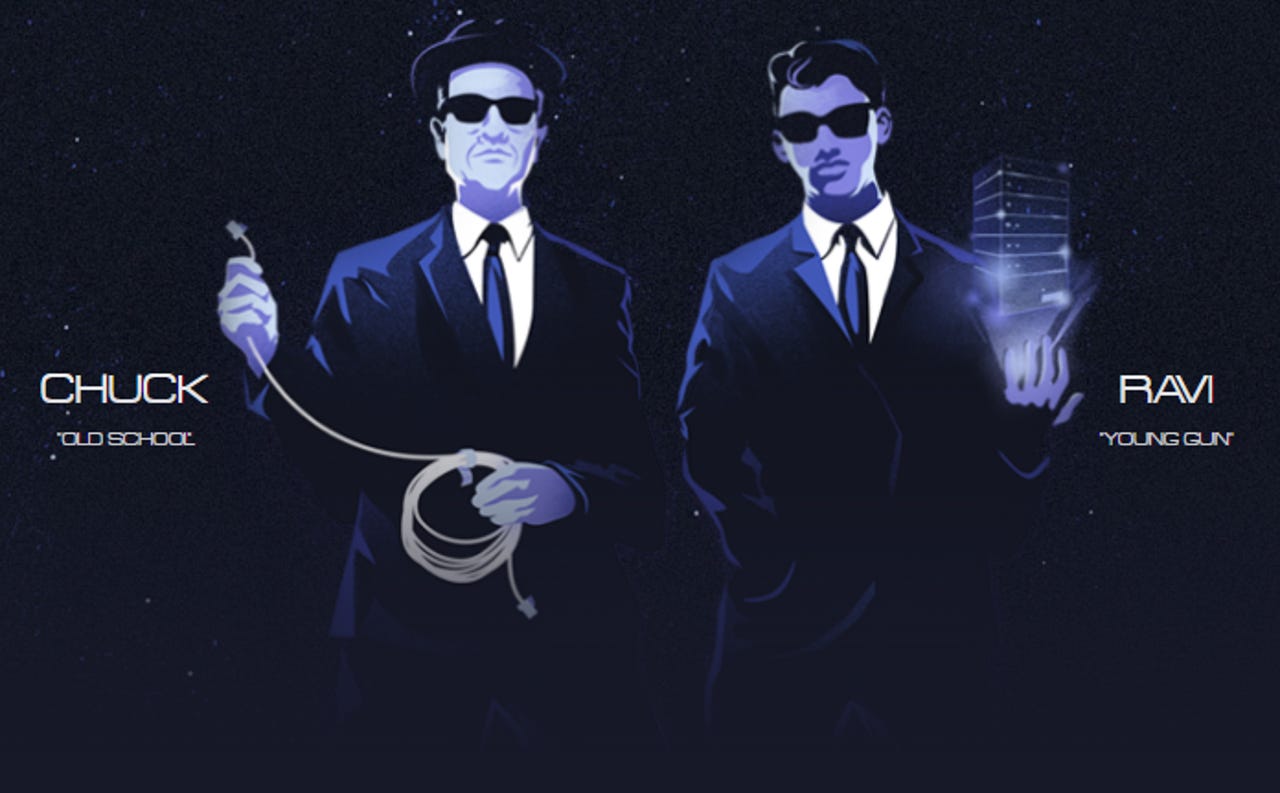VMware turns to sci-fi writers to explain virtualization


Chuck and Ravi are the two main characters in a fictional podcast series, written by SciFutures, to help VMware promote the ideas of network virtualization and business mobility.
If Neo from The Matrix ever called a team of IT guys to help him defeat the machines harvesting humans for power, the conversation might go something like this:
Neo: "What I need is for you guys to have a look at the human energy pods and find a better technical solution."
IT guy: "You can totally virtualize this kind of network. In fact, for an array this size, I bet it would cut your provisioning time in half -- maybe even a third."
Neo: "So, we wouldn't have to have The Matrix... Reloaded. It's a miracle."
IT guy: "Nah, it's just the cloud. Everyone's doing it now."
That's the premise of Episode 1 of the podcast I.T. > Sci-Fi, a series commissioned by VMware. Why is a virtualization software company sponsoring a podcast series that spoofs classic science fiction movies? Its trying to reach a group of potential customers -- traditional executives and long-time IT professionals who have built their careers on hardware -- who are skeptical of what VMware has to offer.
"We have images of them walking around with duct tape and zip ties, trying to knit the network together from a hardware perspective," Nicole Valencic, acting senior director of Thought Leadership at VMware, joked to ZDNet. "Traditionally, hardware's been one of the only ways to build your network... We wanted to communicate some of the benefits of network virtualization in solving challenges that this traditional old guard faces every day."
To accomplish that, VMware turned to SciFutures, an agency that uses science fiction to help companies -- from VMware to Visa -- convey their vision of the future.
"We were brought in to do storytelling," SciFutures founder and CEO Ari Popper explained to ZDNet, "to help VMware communicate in a different way -- in an emotionally engaging way -- about their products and services."
Popper founded his agency about four years ago, when he was simply a science fiction fan with a background in marketing.
"I had this epiphany that science fiction writing used deliberately can help organizations better prepare for the future and get a better idea of where they're going," he said. "This idea of creating a collective narrative about possibilities that everyone is inspired by and believes -- when it works and takes hold -- can be truly transformative."
Now, he runs a company that employs engineers and technologists and works with close to 100 published science fiction writers. They often work with R&D directors or CTOs, Popper said -- executives responsible for promoting innovation within their companies.
SciFutures assists in that through storytelling, sci-fi prototyping, and other conceptual means. They've worked on multiple projects involving virtual reality, as well as voice UIs like Amazon's Alexa. "We're constantly looking at new and emerging technologies we can interpret through the lens of our clients' vision," Popper said.
SciFutures recently finished a major project for Visa, redesigning its executive briefing centers in San Francisco and Miami. The new, immersive environments showcase payment-related themes like biometrics, authentication, and security. The company has also worked with traditional companies like Hershey and Ford, and it's even helping NATO with a project envisioning the future of warfare.
For VMware, SciFutures was tasked with using science fiction to convey the benefits of network virtualization and business mobility. "For example," Valencic from VMware explained, "being able to scale up and down based on the needs of the network, to troubleshoot problems, handle network security issues -- network virtualization is just a much better solution for that."
The SciFutures team quickly decided it'd write a humorous, fictional podcast series. The eight episodes, each about five to eight minutes long, spoof The Matrix, Star Wars, 2001: A Space Odyssey, Tron, Star Trek, E.T., The Terminator, and Independence Day. Each episode features two characters -- an old-school IT guy named Chuck and his young partner Ravi -- who are transported into the classic sci-fi stories to help with technical challenges.
"That dynamic reflects the dynamic in the industry today," Popper said. "You've got industry professionals who are very smart, have seen it all and in many ways hold the keys to the castle and are reluctant to change. Then you've got young professionals who are very bright and have different views."
Among all of SciFutures clients, Popper said, "the common thread is using narrative as a way to grease the wheels -- using storytelling to create this shared belief about what's possible."